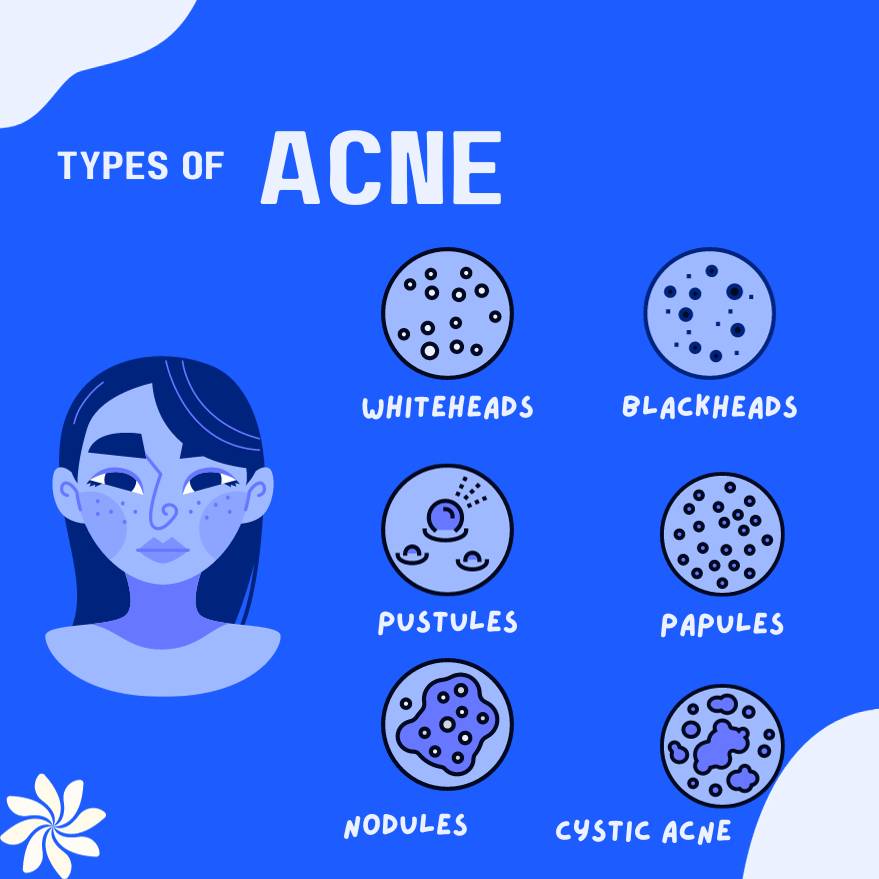Acne is a common skin condition characterized by the presence of various types of blemishes on the face, neck, back, or chest. These can include whiteheads, blackheads, or red, pus-filled pimples. Acne affects both males and females, with a somewhat higher prevalence in women.
Acne can appear during the teenage years and persist into adulthood, with the highest incidence typically occurring between ages 15 and 24. For some individuals, acne may persist beyond the teen years, requiring ongoing treatment.
Effective treatments for acne exist, but addressing it is a lengthy and continuous process. In more severe cases, acne can lead to emotional distress. Early treatment can help reduce the risk of emotional issues associated with acne.

Types of Acne
- White heads appear as tiny, closed pores with white spots beneath the skin.
- Blackheads are small open pores that develop black plugs on the skin.
- Pimples are small red spots that can contain pus.
- Nodules are large, painful, solid lumps beneath the skin.
People can experience various types of acne. Some might have mild, consistent acne, while others might face occasional outbreaks. There are also individuals with severe acne that can affect large areas of the body. It's possible to experience multiple types of acne simultaneously.
Causes of Acne
Acne occurs when bacteria grows inside the pores of the skin. This leads to damage of the skin leading to build up of dead skin cells and bacteria forming pimples/nodules on skin.
Androgen hormones play a significant role in the process of oil glands producing excessive oil, which can block the pores in the face, neck, chest and shoulders. Androgen hormone levels increase both in boys & girls during puberty. However as girls reach puberty earlier, they may develop acne at a younger age.
There are some risk factors such as hormone imbalance, certain health conditions such as Polycystic ovarian syndrome (PCOS), cigarette smoking, poor sleep and a family history of acne. Stress also contributes to hormonal fluctuations increasing the likelihood of acne.
Though acne is not caused by the foods one consumes, some people do claim that eating certain foods makes their acne worse.





